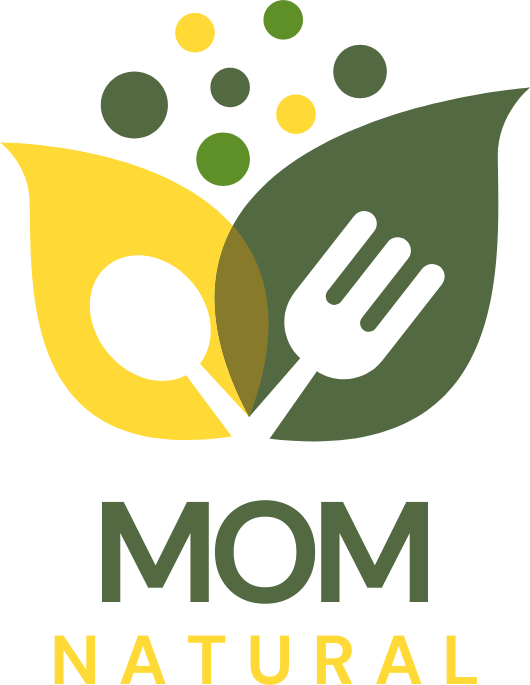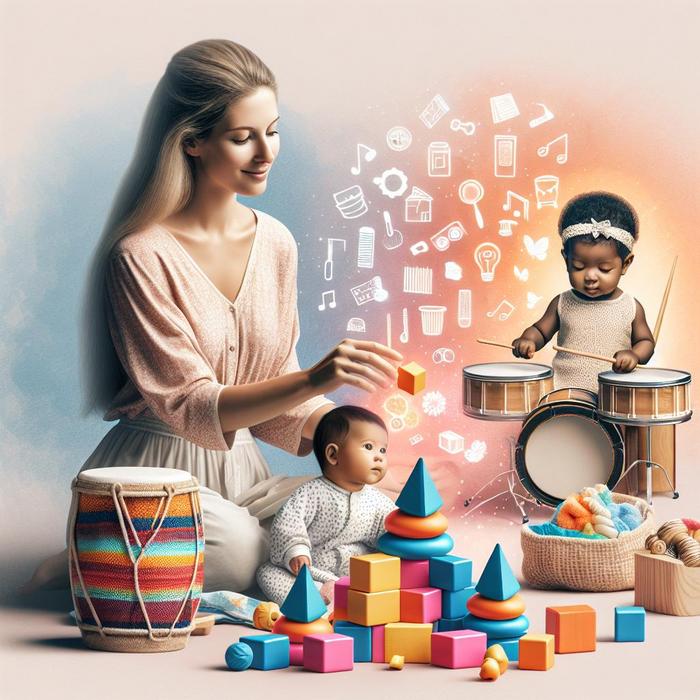Exploring Creative Play Ideas using Household Items
As new parents, one of the biggest surprises we have experienced is how our infant is more interested in everyday household objects than in the expensive toys we bought. This discovery has led to a world of creative play ideas, using household items as learning tools and inexpensive playthings that can keep your little one amused for hours at a time. Not only are these play activities fun and engaging, but they also contribute to stimulating your baby’s development.
Baby Play Activities with Everyday Objects
You will be amazed at the countless baby play activities available right within your home. From kitchen utensils to laundry baskets, these objects provide unique sensory experiences, promoting your baby’s fine and gross motor skills, hand-eye coordination, problem-solving abilities, and more. Here are some of our favorite discoveries:
- Kitchen utensils: Items such as plastic bowls, spoons, spatulas, and measuring cups can keep your baby entertained, as she explores their different shapes, colors, and textures. Of course, always supervise playtime with these items to ensure baby’s safety.
- Laundry basket: This everyday item doubles as an excellent play-thing. Filled with safe objects, it becomes a treasure box; overturned, it’s a hidey-hole or a tunnel. Your baby will enjoy hours of imaginative play while honing vital motor skills.
- Empty water bottles: Fill them with rice or beans, and you have a homemade shaker that your baby will love. Again, ensure the lid is secured to avoid any choking hazards.
- Cardboard boxes: These can be forts, tunnels, or stacking blocks. The possibilities are limited only by your baby’s imagination.
These examples show that the most mundane objects can become sources of joy and learning for your little one. However, it is essential to always supervise your baby during playtime to ensure these objects are used safely. Additionally, check out these tips on valuable baby toys from fellow parents.
Enhancing Baby’s Development with Household Items
Using household items for playtime not only saves you money; it also contributes to your baby’s development. They stimulate a little one’s senses and cognitive skills more than many high-end toys. These everyday objects allow your baby to explore textures, shapes, sizes, and weights in a real-world context.
- Boosts creativity: Playing with non-traditional toys helps foster creativity, as your baby learns to use the items in various ways.
- Fosters problem-solving: Figuring out how to stack pots, nest bowls, or fit a spoon into a bottle helps your baby develop problem-solving skills.
- Enhances motor skills: Grasping, stacking, and sorting different items help your baby enhance fine motor skills, which are critical for tasks like holding a pencil or tying shoelaces in the future.
As echoed by many parents in the beyondthebump subreddit, daily items can unexpectedly turn into your baby’s favorite play things. You can find numerous helpful baby tips on our blog, from what to expect during the first doctor visit, to dealing with baby’s dry skin, and even nutritious and easy-to-make baby meal ideas.
Our Personal Experience
We’ve had many delightful moments watching our baby play with the most unexpected items. An empty tissue box turned into a wonderful discovery box when we filled it with soft toys and household items. Our little one enjoyed pulling out one item at a time, intrigued by the different textures and shapes. A set of measuring spoons on a ring was another hit, providing hours of amusement as our baby explored the clattering sounds and cool metallic texture.
We’ve come to realize that when it comes to playtime, simplicity is key. Everyday objects offer a wide array of sensory experiences and foster a natural curiosity that helps in your baby’s overall development. So, the next time you’re tempted to buy that flashy toy, remember your household holds a treasure trove of stimulating play opportunities.
Household Items Superior to Expensive Toys?
It’s not uncommon for parents to invest in numerous expensive toys for their little ones, thinking it will boost their child’s development. However, a study concluded that inexpensive or free household items are often far more beneficial to a child’s learning experiences than pre-packaged toys. Household items tend to stimulate exploration, creative thinking, and problem-solving significantly more than conventional toys.
Why is this the case?
- Variety: Household items such as pots, containers, spoons, lids, and cardboard boxes provide a wide range of shapes, sizes, colors, textures, weights, and sounds for babies to explore.
- Familiarity: Babies feel closer to these objects because they see adults using them regularly, stimulating their curiosity and mimicking behaviors.
- Unlimited Possibilities: Toys have a limited range of activities, while household items have countless uses, leaving a lot up to the baby’s imagination.
Practical Everyday Baby Toys
You might be surprised at the array of everyday items that can keep your baby engaged. Here are a few more productive uses of common household items:
- Musical Experiences: You can use different household items like jars, tins, bottles, and utensils to create a home-made musical instruments set to develop your child’s auditory skills.
- Edible Paint: Make baby-safe finger paint using food coloring and yogurt. Paint on a high chair tray or large piece of parchment paper. This activity is safe, fun, and introduces your child to different colors.
- Items in a Bag: Fill a transparent sealable bag with different items like feathers, buttons, or beads, then seal it tight. Your baby can explore the different textures and colors safely.
For more ideas, you can visit this article discussing how common household items can make cheap baby & toddler toys.
Precautions and Supervision are Key
While household items offer numerous possibilities for engaging play, it’s crucial to remember the importance of supervision and safety. Ensure that all objects are clean, in good condition and do not present a choking or injury risk for your baby. Always supervise your baby closely while he or she is playing, mainly when they are exploring new objects.
Some conversations in parenting forums highlight that certain household items like coins, buttons, and batteries should never be used as toys under any circumstance. Always be aware of your baby’s activities and the things he or she is playing with.
To conclude, less can indeed be more when it comes to toys. Everyday household items can offer a plethora of creative play ideas. They often trigger more sensory stimulation and can foster better cognitive development than many expensive, store-bought toys. Explore your house today, and you might just find your baby’s new favorite plaything!
Parting Thoughts
Experiences with our little ones have shown us that household items can offer an array of surprising opportunities for creative play and learning. Our baby’s joy and curiosity don’t depend on fancy or expensive toys but on simplicity and the stimulating sensory experiences that everyday items provide. Happy exploring and playing!

